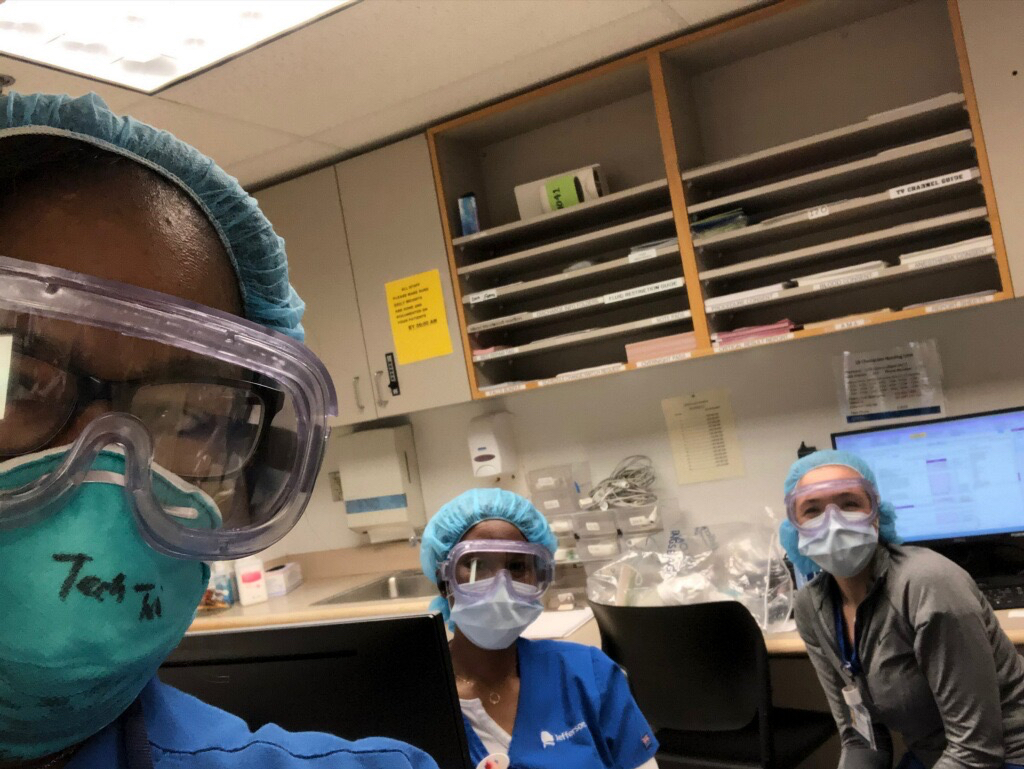
Poised to Lead in the Face of the Pandemic
Jefferson’s disaster medicine and management program covers COVID-19 in real-time.
The COVID-19 pandemic has proven to be a living classroom for students and faculty in Jefferson’s disaster medicine and management (DMM) program.
“It’s fertile ground,” says Dr. Jean Bail, DMM program director and 40-plus-year veteran of the field. “We’re learning so much.”
The graduate program educates medical, public safety and defense professionals on how to plan for, respond to and mitigate the effects of natural and manmade disasters, such as terrorism, earthquakes, hurricanes, floods, wildfires, hazardous materials and major power grid disruptions. Of course, this semester’s lessons have shifted heavily to pandemics.
For example, in the program’s applied research course, students could scrap their preliminary projects in favor of COVID-19-related work. Some examined how rapidly shifting data impacts disaster care and response.
“There were weeks where it seemed like the CDC guidelines changed every hour,” Dr. Bail explains. “How do we know what to do? How do we develop trust in a process when it’s changing so quickly around us?”
The program also hosted a March 28 session where DMM students who work as nurses at Thomas Jefferson University Hospital and New York City hotspots shared their experiences on the front lines. Calling it a “fascinating conversation,” Dr. Bail says the students detailed what they’ve learned from battling the pandemic and how to best deal with the intense stressors they face.
The lessons we learn from this will influence the processes we use in planning preparedness, mitigation, response and recovery for years.
In another change due to COVID-19, DMM faculty will move this summer’s week of real-world activities to a virtual program.
While students won’t be able to practice hands-on skills in the field like usual, they will see perspectives not traditionally offered. Professor Aaron Richman, for instance, will run a full-day exercise live from Israel, walking around Old City Jerusalem and discussing the country’s pandemic response from a historical perspective.
Student Nelly Perez says the DMM program not only has a strong foundation in theory, but it challenges her to learn from the past and improve the present while thinking about the future.
“I’ve stepped out of my comfort zone, and that has allowed me to develop my skills further and be open to new experiences,” she says. “Also, the guidance and mentorship of my professors have been vital for me to succeed and feel confident in the work I deliver. It’s always exciting to apply in real life what you learned in the classroom.”
During the spring semester, Perez became an intern in emergency management at Main Line Health, where she was actively involved in several projects. However, as soon as the health system began planning for the pandemic response, her supervisors offered her a temporary position to support the hospital’s COVID-19 response efforts under its public safety department.
The University’s focus on Nexus Learning and its high job placement rate has helped the DMM program earn top rankings from Intelligent, Best Colleges and Security Degree Hub, says Dr. Bail, noting Jefferson will continue to produce graduates poised to lead in difficult, rapidly changing environments.
“Events will continue to happen,” Dr. Bail says. “They may not be as drastic as a pandemic, but the lessons we learn from this will influence the processes we use in planning preparedness, mitigation, response and recovery for years. This is really the opportunity to take advantage of all the material coming out and be able to learn.”



